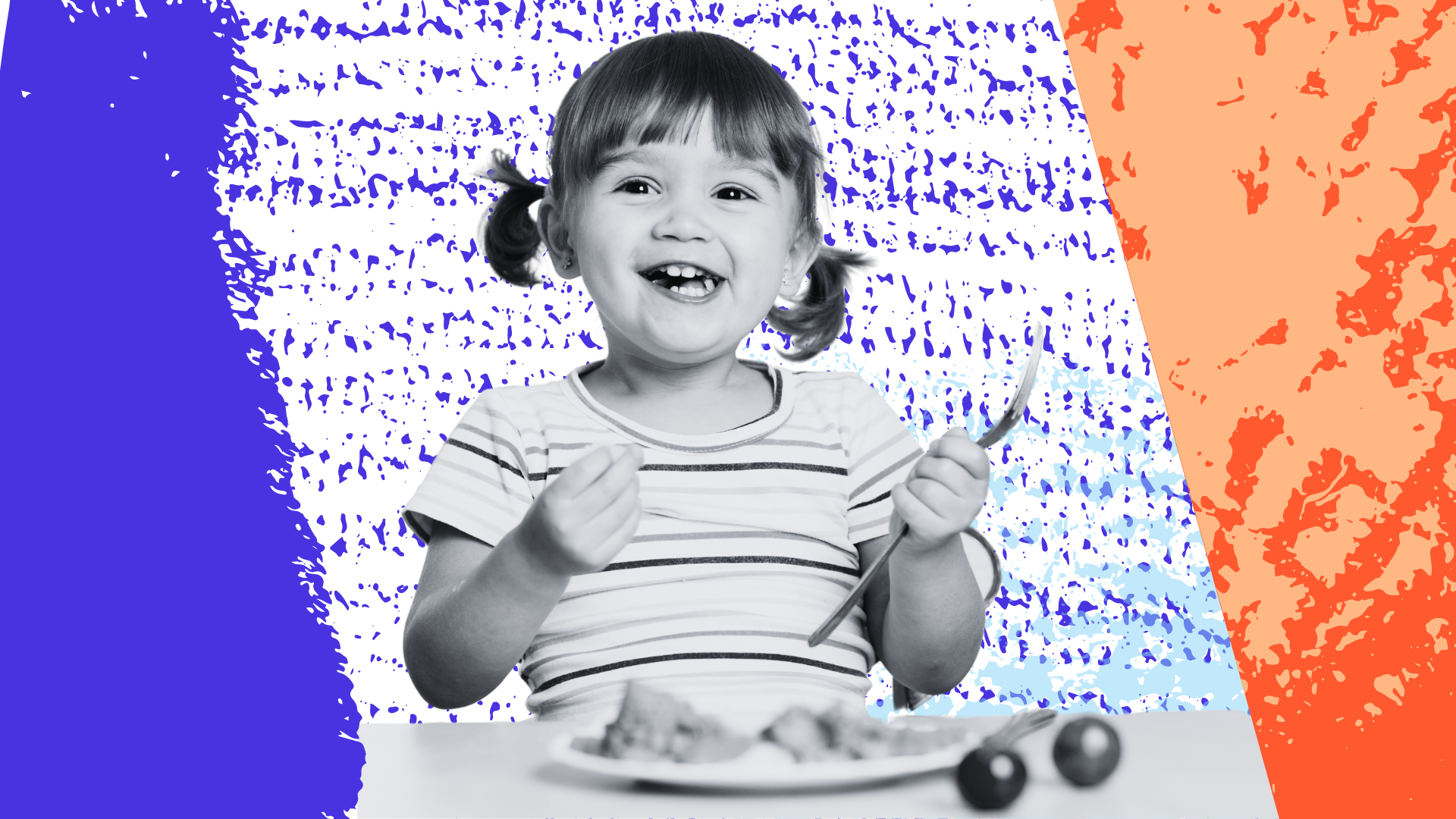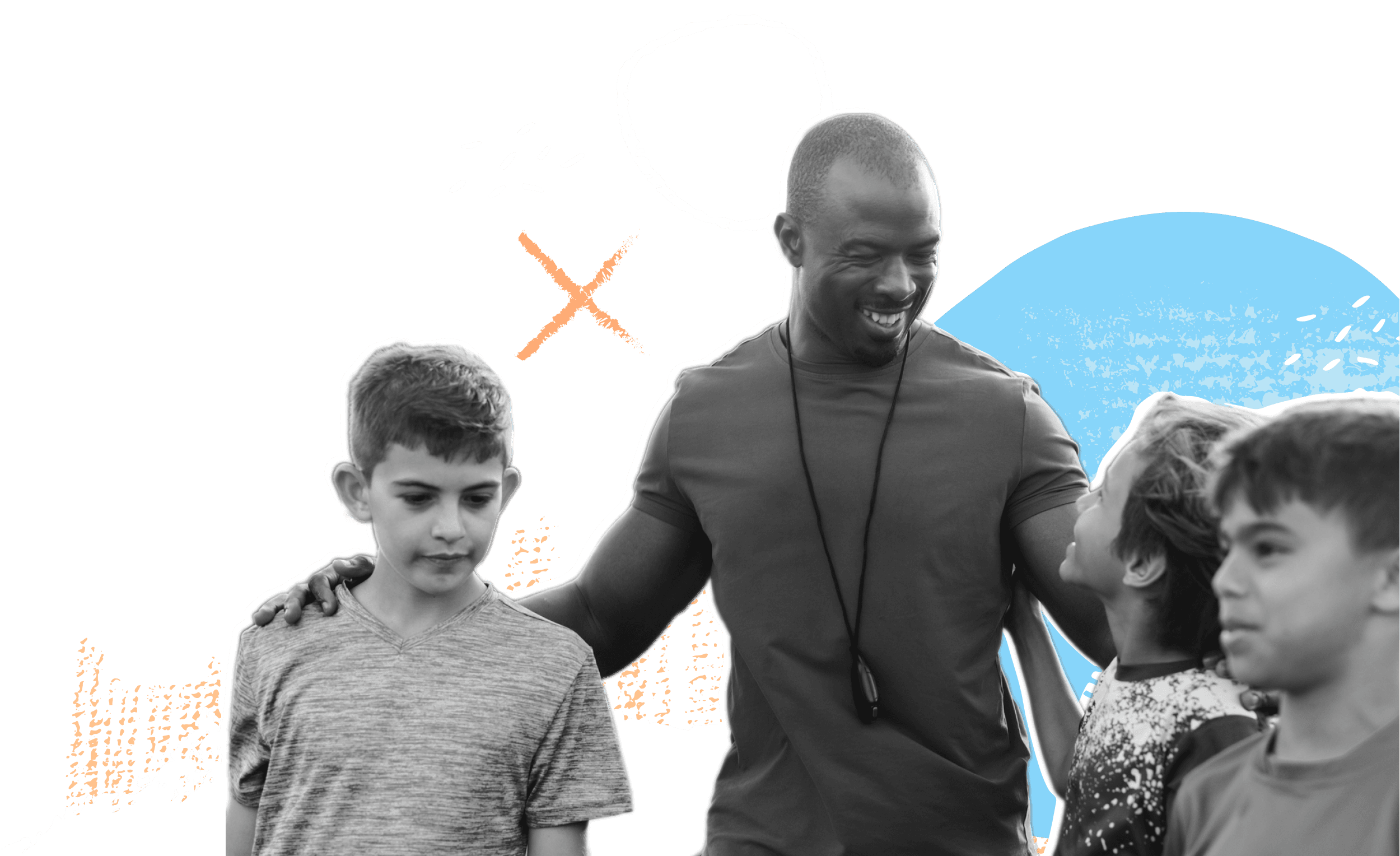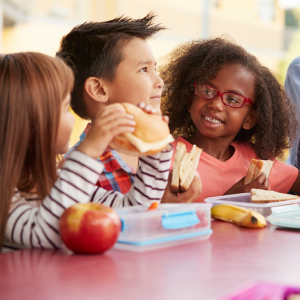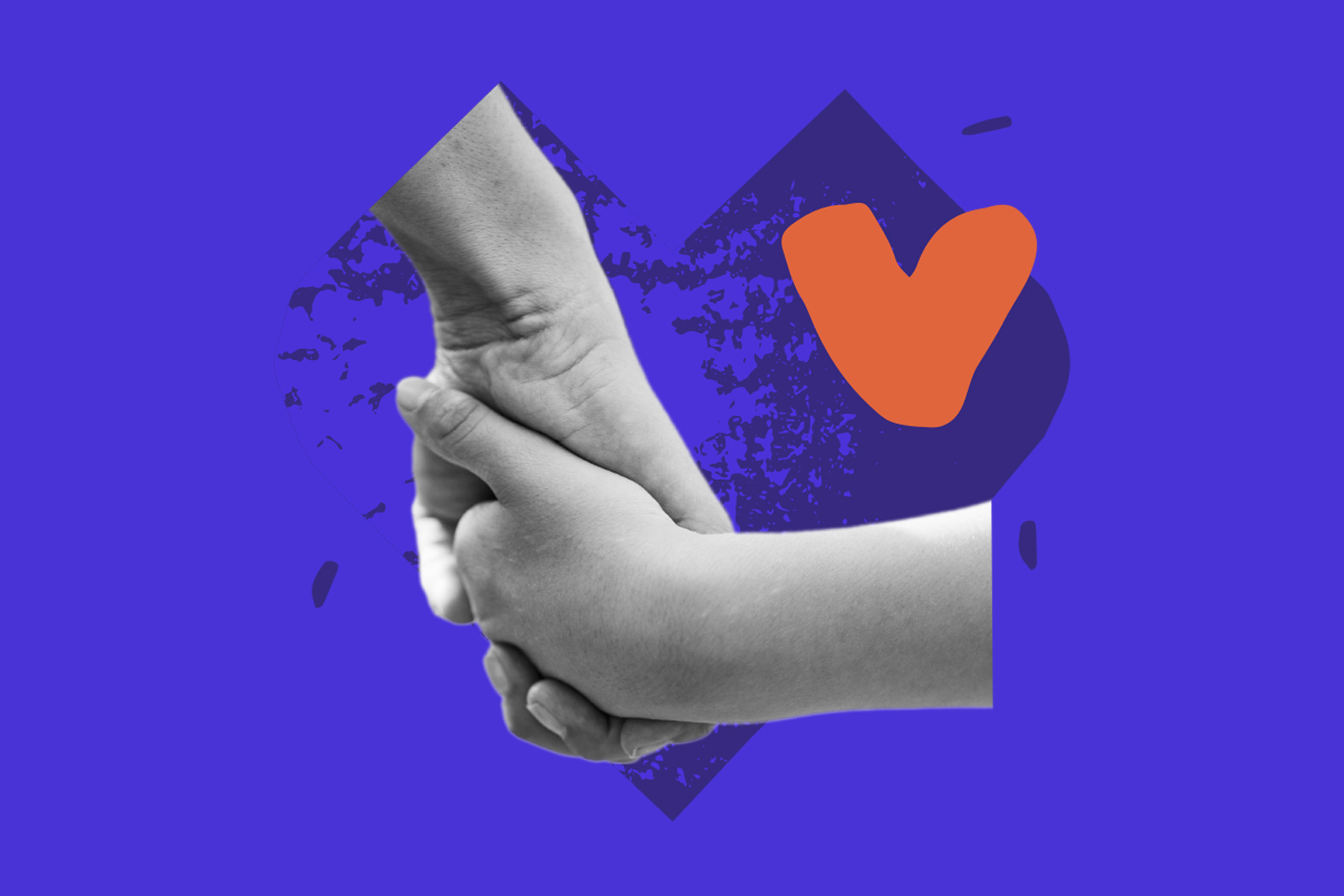So, what exactly is diet talk anyway?
Diet talk includes any conversation about restricting foods or food groups, especially for the sake of wanting to change one’s body weight, shape, or size. Diet talk doesn’t just mean “being on a diet”. Diet talk includes practices such as harmful food labeling or assigning moral value to foods. This can cause us to value ourselves and the people around us based on which foods they eat, and decide that certain ways of eating are “better” than others. This includes practices such as:
- Labeling or categorizing foods into groups like “good/bad”, “healthy/unhealthy”, “clean/junk”, etc.
- Criticizing certain ways of eating while elevating others
- Following strict rules about what, when, and/or how much to eat

Why is it so important to stop harmful diet talk?
Engaging in any conversation about diets, restricting certain foods, or labeling foods with any sort of value judgment sets kids up to feel a heavy burden when it comes to food. Kids learn about the world by watching what you do and listening to what you say. They want to please the adults they admire – i.e. you – and therefore may feel morally bad about wanting or preferring certain foods that the adults around them have labeled as “bad” or “unhealthy”.
The result? Now, or in years to come, children either consume the “bad” or “unhealthy” foods and feel guilt and shame, or choose instead to diet, restrict, or engage in other unhealthy behaviors.
When you participate in diet talk, you create the false idea that there are certain foods that we should fear, foods we should not eat, or foods that you are “bad” for consuming. And in doing so, we set the kids in our lives up for failure. When kids are exposed to these messages, they may enjoy a slice of cake at a birthday party or ice cream after a tough game and decide that they too are “bad” for indulging. Repeat exposure to this can lead kids to feel guilt or shame about their food choices, and their bodies. For some kids, it may lead to restricting the foods they eat, or overindulging when they get the chance.
This type of diet talk is especially harmful for those who don’t match the so-called “ideal” picture of health, which disproportionately includes women, trans folks, people of color, people with disabilities, people in larger bodies, and those without consistent access to healthful foods, among others. For some kids, this may lead them to experience additional mental and physical health impacts.
But certain foods are better for us, right? Shouldn’t we be helping kids to make good food choices?
It is true that certain foods provide our bodies with more nutritional value than others. And it is important to help kids understand how certain foods make our bodies feel, our ability to focus, our energy levels, and our sleep.
It’s also important to emphasize balance instead of restriction. While whole, fresh foods are vital to nutrition, food is also fundamental to family/community gatherings and celebrations. In addition, like it or not, we live in a busy world whereby our best efforts at nutrition sometimes look a little more like processed foods than we’d choose in an ideal world. All you can do is your best and remember that it’s okay! Some days or sets of days will be “strong nutrition days”, and others will be not so strong. The best you can do is honor our body, mind, and spirit.
Along the way, you can engage kids in learning more about how their bodies work, how certain foods make them feel, and talk to them about what specific foods provide to support their growing bodies and minds. You can learn more from The Feeding Doctor. Or check out our What to Say conversation cards for ideas. You can also check out our brand-new What to Say Q&A Series, where we answer your questions, including questions about your role in helping kids eat “healthy”.
By doing your best to shift our language away from harmful diet talk, you can inspire and empower kids to develop a more complete understanding of health, and to truly believe that they are enough.



